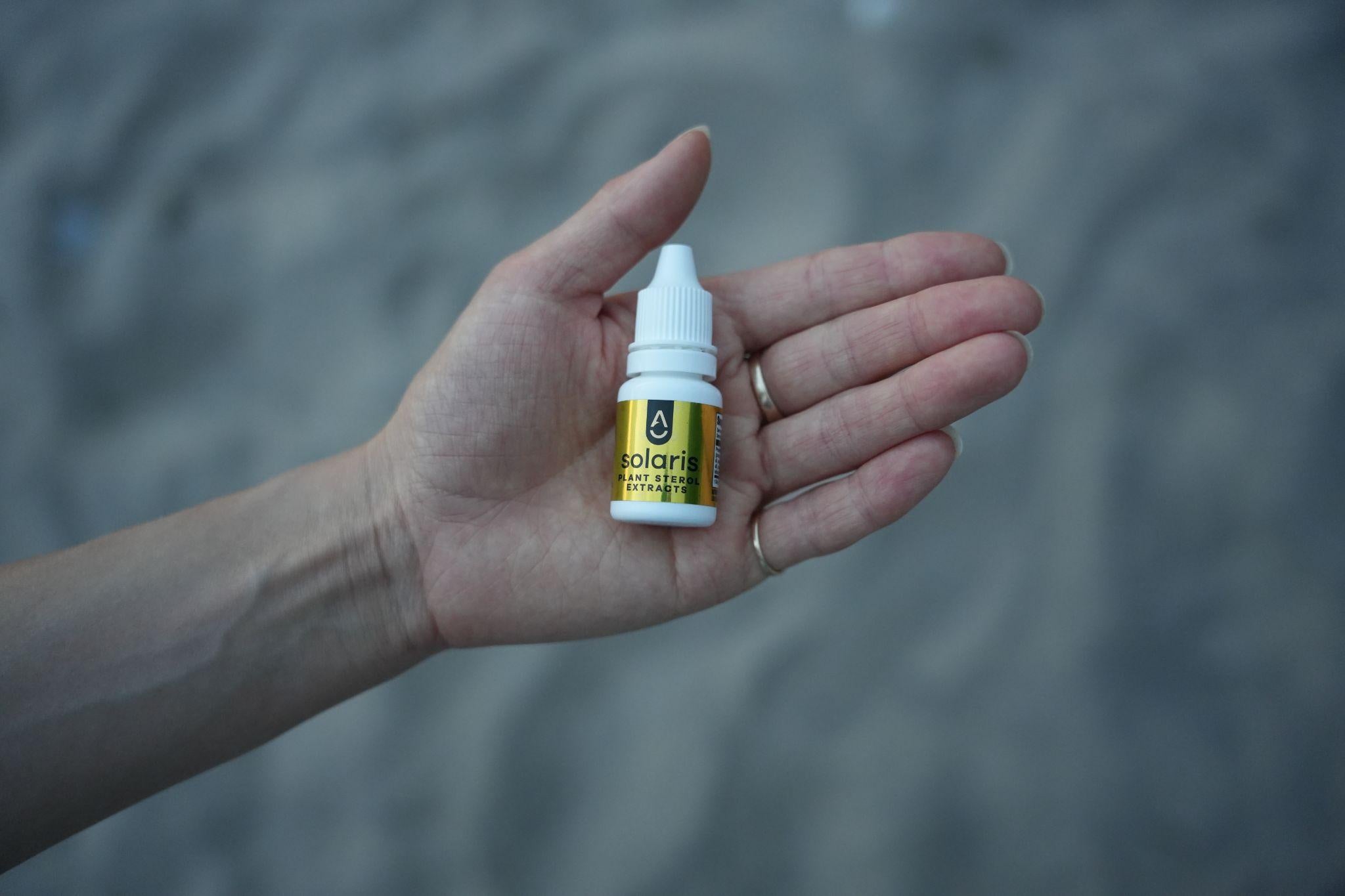
Your body is a complicated machine.
It requires the right balance of nutrients to work properly.
Your muscles need a number of essential minerals to function at their best.
When you exercise, whether it's an intense workout or a simple walk, your muscles tear. That is a normal phenomenon — it's what leads to muscle growth — but you need to make sure your body has enough of what it needs to repair those muscles.
That's where electrolytes come in.
What are Electrolytes?
Nate Morrow at BuiltLean.com provides a breakdown "When dissolved in fluid, salts tend to break apart into their component ions, creating an electrically-conductive solution. For example, table salt (NaCl) dissolved in water dissociates into its component positive ion of sodium (Na+) and negative ion of chloride (Cl-). Any fluid that conducts electricity, such as this new saltwater solution, is known as an electrolyte solution: the salt ions of which it’s composed are then commonly referred to as electrolytes.”
Our various fluids and tissues conduct electricity within our bodies, sending “messages” to and from the brain, making our basic functions possible.
Electrolyte solutions like the one that Nate describes allow for this message transmission, allowing for nerve impulses, muscle function, healing and hydration.
While there is a longer list, there are six “key” electrolytes that bear the most responsibility, these are sodium, chloride, potassium, magnesium, phosphate and calcium.
A quick breakdown of these electrolytes will illustrate their importance for your muscle health.

The Mighty 6: How they function and where you can find them
Sodium is one of the more well-known electrolytes and it's an easy one for people to access. Homemade electrolyte drinks usually contain quality salt sources, such as Himalayan rock salt or sea salts.
You’ve probably heard it said before that salt can cause water retention, or heard people refer to salt as key to staying hydrated. Well, it’s true, sodium is responsible for regulating the amount of water in your body.
If you're dehydrated you’re likely to experience muscle aches or spasms, and muscle repair post-workout will be next to impossible. Since 75% of muscle tissue is water, your muscles will feel fatigued and will be more prone to damage if water levels are low. Muscle contraction will be affected.
Brad Sly, fitness coach and writer for BreakingMuscle.com explains how sodium is useful post-workout: "Including sodium into recovery fluid can assist in replacing the electrolytes lost through excessive sweating. Rather than just losing the fluid through excessive urination, the addition of electrolytes can help the body retain the water consumed."
The recommended daily intake amount for sodium is 2.3 g, but most Americans consume 3.4 g or more, which can lead to blood pressure issues (particularly if you have a family history of those things).
It’s important to seek out healthy sources of sodium, and avoid processed foods. Processed foods typically contain much more sodium than you might think as it compensates for low-quality ingredients and a lack of flavor.
Chloride is not specifically required for muscle repair, but it is important for maintaining fluid balance inside and outside of your cells. It is also key for balancing pH and encouraging detox.
Like sodium, chloride is primarily obtained through salt in your diet, making it imperative that you source out healthy salts, like sea salt, that are not processed and that offer additional health benefits.
Potassium is critical for neuron transmission, regulating your heartbeat, ensuring proper muscle function, helping to transmit nerve impulses and facilitating muscle contraction. Without enough potassium in your system, muscle fatigue or painful cramps could become a problem.
We can get potassium from eating fresh fruits (bananas are especially high in potassium) and vegetables and from healthy sources of milk and meat.
People tend to get too much sodium and not enough potassium, which causes an imbalance that can lead to heart disease and stroke.
Potassium can also affect your muscles: In humans, maintaining the right amount of potassium is critical for maintaining muscle tone. Muscle tone is partly a matter of electrical charge. Muscles need to absorb and release potassium to change their charge as they contract and release. Muscles that don’t have enough potassium become loose and weak, while muscles that have too much potassium become “twitchy.”
Magnesium is important for more than 300 biochemical functions in the human body, and your muscles require it.
Among the many things that magnesium does, is promoting healthy nerve and muscle function. How specifically? Marcus Julian Felicetti at MindBodyGreen.com explains: "Magnesium allows the body to produce more Insulin-like Growth Factor (IGF-1), which is a major contributor to the growth and strength of muscles. Furthermore, adenosine triphosphate (ATP) is the cell's energy store, and is created with help from Magnesium."
Magnesium also works hand in hand with calcium, another electrolyte on our top 6 list. One can't do its job without the other.
Nuts, seeds, leafy green vegetables (like kale and spinach), kefir and dark chocolate are excellent sources of magnesium, however, it's extremely challenging to actually get enough magnesium from food. A topical magnesium supplement, provided it's a high-quality, bioavailable solution is the most effective option. Check out EASE Magnesium for a pure, absorbable option.
Phosphate promotes strong healthy bones and teeth, but it's also important for tissue growth and repair, meaning that muscle repair and pain relief post-workout are significantly affected by phosphate levels.
This electrolyte produces DNA and RNA, which are your body’s genetic building blocks. It enables muscle contraction and nerve conduction and helps your body to absorb and use other nutrients, like magnesium, zinc, iodine and vitamins B and D.
Besides electrolyte sports drinks, phosphorous can be found in dairy products, beef, poultry and eggs, fish, nuts and seeds and beans.
Calcium is necessary for the growth and strength of bones and teeth, which you probably know if you’ve ever seen a milk commercial, but it does so much more than that. It is key for muscle contraction and nerve impulse transmission.
Your bones are not the only place you’ll find calcium, it's also in your blood and your muscle tissues. When you’re deficient in calcium, your body borrows it from your bones to provide it to your blood and muscles. That can lead to fragile bones and conditions like osteoporosis.
Having said that, too much calcium can lead to calcifications, which can be especially painful when they are preventing muscle or joint movement.
Besides milk and other dairy products, you can also get calcium from leafy greens, fruit and seafood.
You need these six electrolytes to ensure the growth and repair of muscle tissue, to keep your body hydrated, to facilitate muscle contraction and to make sure that messages to and from your brain are being transmitted properly.

If you're looking to increase your magnesium levels, you should try EASE. Most electrolytes are pretty easy to get from food, but because of modern farming practices, magnesium is missing from a lot of the foods that used to contain it. Plus, your digestive system tends to destroy it, so getting it from oral sources (either food or supplements) can be tough.
Get your bottle of EASE today!
Resources
http://www.builtlean.com/2012/11/28/electrolytes/
http://www.globalhealingcenter.com/natural-health/electrolytes/
http://greatist.com/fitness/do-i-really-need-electrolytes-after-exercise
https://draxe.com/health/electrolyte-imbalance/
http://greatist.com/health/how-do-i-know-if-im-dehydrated
https://breakingmuscle.com/mobility-recovery/eating-to-recover-how-and-what-to-eat-post-workout
http://www.healthline.com/health/phosphorus-in-diet#Function2












What are Nootropics?
Superdosing with Oceans Alive